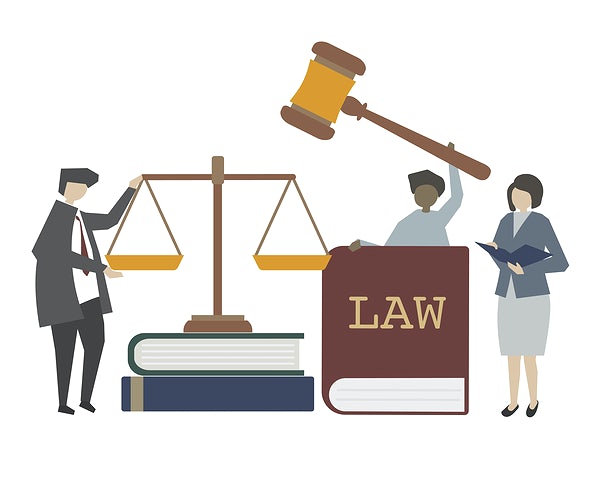
Every day, hundreds of parking complaints and violations are registered across homeowners associations in every state. Thankfully, HOA Parking rules exist. However, many people are not aware of them. While for others, it is a struggle to properly enforce them. So it comes as no surprise that parking is a fairly common HOA issue.
In this article, we will take a look at what HOA parking rules are, how to comply with them, and communicate them efficiently.
What are HOA parking Rules?
Put simply, HOA parking rules are a set of policies that regulates where residents and guests leave their vehicles. These rules are part of the HOAs governing documents, such as the CC&Rs. Such directives must comply with state and federal laws. They usually stipulate:
- Type of vehicles allowed and prohibited (e.g.: trailers);
- Number of parking spaces permitted per resident;
- Guest parking space location
- Parking time duration;
- Restrictions and violations;
1. Understand laws around HOA Parking Rules
There are guidelines around cars and parking in homeowners associations. Both residents and board members need to review them regularly. Also, potential buyers should ask for them before buying a property in an HOA. This will avoid nasty surprises. An HOA can’t limit the number of cars a resident owns. But they can limit parking spaces and the number of cars parked in driveways. So it’s important to be aware of that.
You should know that rules usually vary from an HOA to another. So here, we will give a general overview of different authorities and governing principles.
CC&Rs – the declaration of covenants, conditions, and restrictions
The CC&Rs is a legal document that outlines the rules and regulations for a community. It states what is permitted and prohibited. In general, both residents and board members will find the necessary information regarding HOA parking rules there. This document is useful for residents who would like to understand what they can and cannot do. Instead, board members will rather use it as a tool that would help them enforce rules.
State and Federal Law
All rules included in the CC&Rs should coincide with HOA state and federal laws. This means that there are certain things for which board members do not have the authority. In some cases, it is the government’s role to handle certain violations. This is the case for towing for example. Some states allow board members within a community to proceed with towing. Other states have specific procedures for towing. Another example would be private vs public streets which we will go over in the next section.
Public streets vs Private streets
There is a common question when it comes to street parking: Can an HOA prohibit street parking? Well, it depends on various factors. But one way to get closer to the answer is by knowing whether the street is private or public. In general, an HOA can restrict and prohibit street parking in any of the private streets within the community. However, if it’s a public street, normally an HOA doesn’t have the authority to restrict or take any action. That would be the government’s role.
Can an HOA prohibit residents from parking in their own driveways?
Yes, an HOA can prohibit cars in the driveways and ask residents to put them in the garage. They may also allow vehicles in the driveways but limit the number. For example, they may allow only one car per driveway.
What happens if someone violates HOA parking rules?
That’s the big question. In general, the board member will start by sending the vehicle owner a warning. After the first warning, the upcoming violations will probably prompt fines. If the issue persists after a few notices, then the HOA can decide to tow the vehicle. Most HOAs have different procedures for when violations occur. Some for example decide to restrict some rights such as amenities usage to try to stop the problem.

2. Communicate rules, warnings, and alternatives
Consistent communication and easy access to guidelines are essential for enforcing HOA parking rules. Residents often violate policies due to confusion over guest parking limits, tow zones, or seasonal restrictions. To prevent this, store rules and FAQs on a centralized digital hub like an HOA website ensuring 24/7 access. Automate reminders via newsletters, push alerts, or voice calls to reinforce policies during peak times like holidays or events. Diversifying communication channels—emails, texts, and virtual town halls—ensures no resident misses critical updates.
Proactive management also plays a role. Track violations, guest permits, and maintenance requests (e.g., pothole repairs) through integrated tools. Simplify incident reporting and amenity reservations to reduce parking congestion and use automated alerts for deadlines like permit renewals. Transparent logs and calendars build trust by demonstrating fair, organized enforcement.
How Technology Supports Compliance
Modern platforms consolidate these tasks, eliminating fragmented workflows. For example, unified messaging tools streamline rule reminders, while centralized dashboards track violations and guest parking. Automated logs ensure accountability, and real-time alerts inform residents about temporary changes (e.g., construction closures).
Platforms like Neigbrs by Vinteum offer tools that you can use to enforce HOA parking rules effectively for communities seeking an all-in-one solution. From automated reminders and document storage to violation tracking and guest permit management, such platforms simplify communication and operations—freeing boards to focus on fostering a compliant, harmonious community

3. Use technology to deal with violations and ensure enforcement
HOA parking rules are not easy to enforce. As a result, parking issues often arise. Common problems include:
- Parking disputes among homeowners
- Use of guest parking spaces for long periods
- Parking in community streets (e.g., sidewalks in front of their home)
- Homeowners parking prohibited vehicles in their driveways (e.g., commercial vehicles)
- Homeowners owning several vehicles and not enough parking space.
Dealing with issues and violations is not an easy task. It is clearly frustrating for both board members and residents. It is also a time-consuming process. However, some HOAs use a digital platform to help them.
Some software provides violations features that help streamline the whole HOA violations process. It enables you to keep track of violations, notify residents in one click, and even send reminders. Having all this information stored in one place also provides transparency.
You will never have to prove anything to angry residents again. All actions taken by board members are stored online. This definitely increases trust and also improves the quality of the service offered by the board of directors.
Keep in mind
Parking issues will continue to happen in the future. That is undeniable. But it doesn’t have to be a nightmare anymore. By applying good communication practices and using the right tools, HOA parking rules can be easily enforced. The tips mentioned above are just a starting point to the many things that your community can do to provide parking solutions and tackle issues.
By the way, an HOA newsletter is an efficient communication tool. But we know is that it is easy to feel lost in the process of preparing one. That’s why we are sharing this HOA Newsletter template that you can fill in and customize. Click below!




